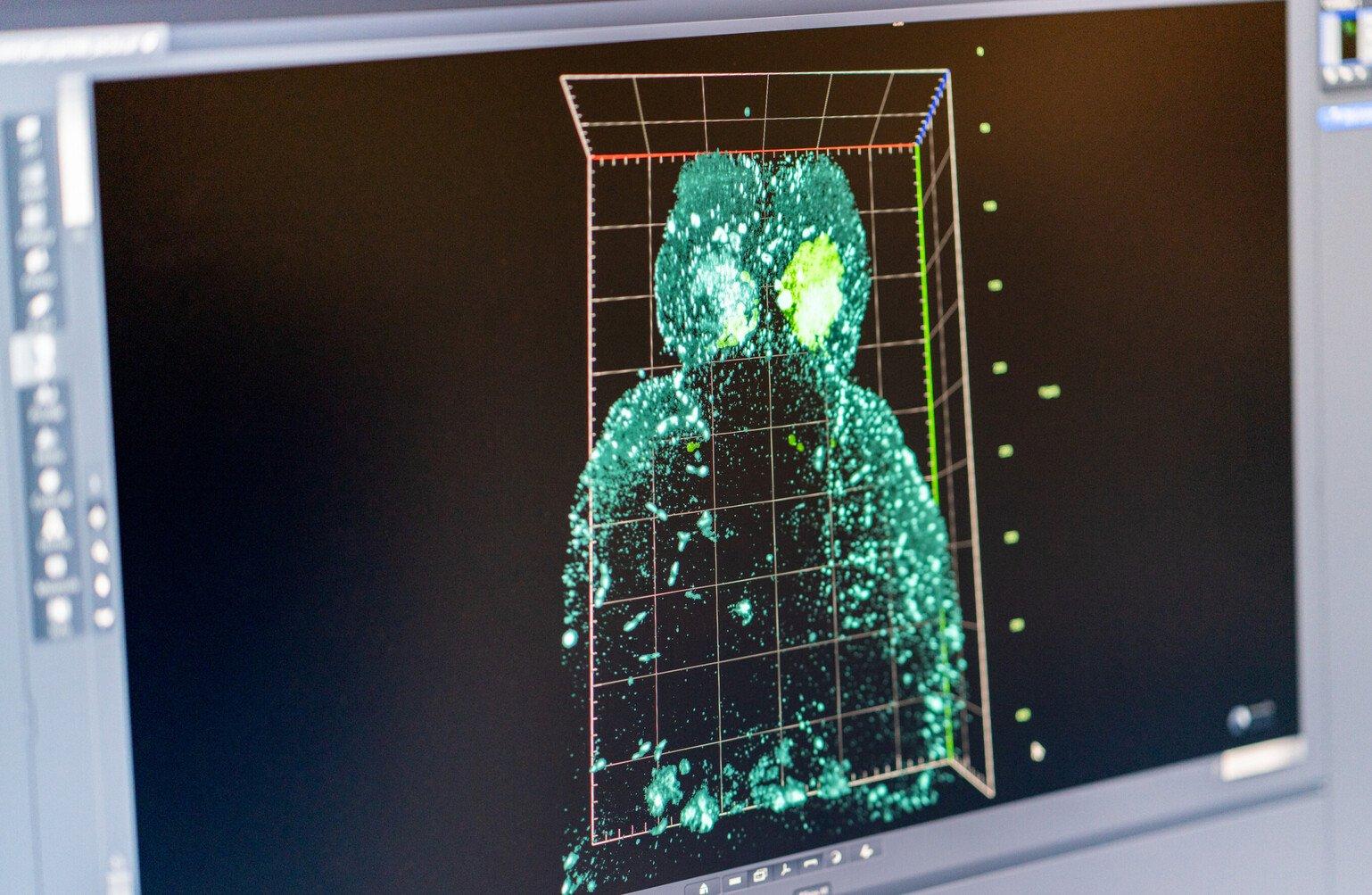
Unlocking researchers’ potential: our vision for Discovery Research
Michael Dunn, Wellcome’s director of Discovery Research, shares his ambitions for funding creative curiosity-based research
Bioimaging is vital to the future of health research, but there are barriers to access and progress in the field. Wellcome’s Marion Mercier and Luigi Martino explain how our new funding calls aim to change that.

Image of a scan of a zebrafish brain from a Discovery Research funded project.
Patrick Shepherd | Wellcome
Our understanding of biological life is dependent on our ability to visualise it. That’s why bioimaging technologies are fundamental to discovery research.
From observing individual atoms and subcellular structures, to entire organs and organisms, bioimaging allows us to delve into biological systems and reveal the complex mechanisms underlying health and disease.
As part of our Discovery Research programme, we're committed to widening access to tools and technologies that enable researchers to undertake groundbreaking research.
Wellcome has a rich history of supporting bioimaging technologies and infrastructure, and we want to progress this work further. From the high costs of imaging equipment to the lack of standardised methodologies, there are many barriers to progress in the field that need to be addressed.
That’s why we’re launching a series of funding calls starting this year to help develop novel tools and technologies and to increase access to these key methodologies in low- and middle-income countries.
Here, we share how we’ve supported the bioimaging field so far – and what we plan to do next.
Wellcome has supported innovation in bioimaging over the years, including:
We have also facilitated bringing imaging communities together to share learning and experience. We hosted the first meeting of the Volume EM community initiative which is now a well-established entity that is pushing the boundaries of volume imaging methodologies in the UK.
This support has already led to significant advancements in health research. It has provided access to state of the art methodologies and allowed the acquisition of complex datasets that are now easily accessible to life science researchers.
Funding for imaging has been made via a mix of Wellcome’s open mode schemes and directed funding.

Michael Dunn, Wellcome’s director of Discovery Research, shares his ambitions for funding creative curiosity-based research
Given our ongoing involvement and its potential to discovery research, we commissioned a landscape analysis of the global bioimaging research field.
As a global funder, we are aware that barriers to progress in a field are context-specific and might differ for researchers based in low- and high-resource settings. As such, it was vital that we engaged with a diverse and representative population of researchers for this analysis.
We partnered with Technopolis Group who conducted the global landscape analysis. Responses were captured from over 500 people in over 40 countries and compiled in a report.
The report showed that barriers fall broadly into two categories: infrastructural and scientific/technical.
There are major challenges with:
the high costs of imaging equipment and infrastructure
the lack of availability of and access to imaging facilities
the lack of technical expertise necessary to support researchers in acquiring and processing complex imaging data
While these barriers affect researchers in all settings, their negative impact was far greater in low- and middle-income countries.
These include difficulties around:
sample preparation and methodological standardisation
analysis of large and complex bioimaging datasets
limitations in spatial and temporal resolution
On a broader level, integrating different bioimaging technologies across scales and combining imaging with other methods were identified as challenges. Solving these will be key to gaining new insights into biological processes.
Based on the findings in the report, we have planned two initial bioimaging funding activities.
We want to enable the development of novel tools and technology for bioimaging. Our Bioimaging Technology Development Awards, a two-phase directed funding call, aims to bring together technology developers and users in collaborative frameworks to tackle some of the biggest methodological barriers currently holding up discovery research.
The initial phase will identify novel teams with bold and ambitious technology development programmes. We will fund these for 18 months to allow them to collect proof-of-principle data and/or expand their collaborative team. Some of the most promising teams will then be scaled up to fully funded programmes for a maximum of six and a half additional years.
Having already invested in technologies imaging at the scale of atoms-cells, we will now focus on cells-tissues. This is where some of the most ambitious biological questions remain unanswered – in the fields of connectomics, cell atlasing and more broadly in the visualisation of dynamic and systems biology, for example.
We will also be interested in novel methodologies aimed at analysing complex imaging datasets and in programmes that adapt bioimaging technology for better use in low-resource settings.
We aim to increase access to bioimaging facilities and training in bioimaging methodologies for researchers in low- and middle-income countries.
This activity, launching in 2024, will see a series of funding calls delivered via a partnership with Global Bioimaging (GBI), a global consortium of imaging infrastructures. Their established network and understanding of the global bioimaging landscape will maximise reach and impact.
These are the first funding activities of a programme that we hope will be of great benefit to the community.
We want to push the boundaries of what is technically feasible with the current state of the arts, and to ensure equitable access to novel technology and the discoveries it promises.
We take on these challenges with the conviction that they will unblock research in new fields of enquiry, transform existing fields and create environments where researchers can thrive.
Sign up to our Research Update Newsletter for information on funding opportunities and policies.
This article was first published on 12 September 2023.